Related Research Articles
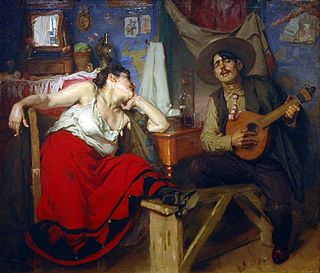
Fado is a music genre which can be traced to the 1820s in Lisbon, Portugal, but probably has much earlier origins. Fado historian and scholar Rui Vieira Nery states that "the only reliable information on the history of fado was orally transmitted and goes back to the 1820s and 1830s at best. But even that information was frequently modified within the generational transmission process that made it reach us today."

Portuguese music includes many different styles and genres, as a result of its history. These can be broadly divided into classical music, traditional/folk music and popular music and all of them have produced internationally successful acts, with the country seeing a recent expansion in musical styles, especially in popular music.
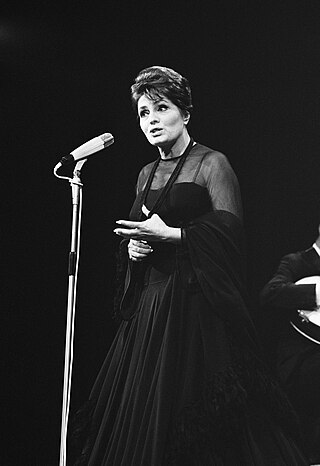
Amália da Piedade Rebordão Rodrigues, known as simply Amália Rodrigues or popularly as Amália, was a Portuguese fado singer (fadista).
Susana Maria Alfonso de Aguiar, known mononymously as Mísia, was a Portuguese fado singer. She was a polyglot, singing some of her songs in Spanish, French, Catalan, English, and Japanese.

Katia Guerreiro is a South African-born Portuguese fado singer, who has released eight albums and has received several awards, including Order of Arts and Letters, Chevalier rank, from the French government and the Order of Prince Henry from the President of Portugal.

Bruno de Almeida is an independent filmmaker whose body of work navigates between fiction and documentaries. He is also a composer. He is New York City and Lisbon-based.

Amália is a 2008 Portuguese biographical film directed by Carlos Coelho da Silva and starring Sandra Barata, Carla Chambel and José Fidalgo. Barata portrays legendary Portuguese fado singer Amália Rodrigues; songs used in the film are recordings of Amália. The film has been criticised by some members of her family.
Fados is a 2007 Portuguese film directed by Carlos Saura. The film, a fusion of cinema, song, dance and instrumental numbers, explores Portugal's most emblematic musical genre, fado, and its spirit of saudade (melancholy).

The symbols of Portugal are official and unofficial flags, icons or cultural expressions that are emblematic, representative or otherwise characteristic of Portugal and of its culture.

Alma is the second album released by Portuguese fado singer Carminho. It was released on 2 March 2012. The album features three classical fados, from the repertoires of Amália Rodrigues, Maria Amélia Proença and Fernanda Maria, three originals, including Bom Dia, Amor, from a letter by Fernando Pessoa, and two versions of traditional fados, with new lyrics, including Folha, written by Carminho herself. The album includes two versions of songs of great names of the Brazilian Popular Music, Meu Namorado, by Chico Buarque, and Saudades do Brasil em Portugal, by Vinicius de Moraes.

Gisela João Gomes Remelho is a Portuguese fado singer.

Prazeres Cemetery is one of the largest cemeteries in Lisbon, Portugal; it is located in the freguesia of Estrela, in western Lisbon. It is considered to be one of the most beautiful and famous cemeteries in the world. It is home to the Mausoleum of the Dukes of Palmela, the largest mausoleum in Europe.
Events in the year 1891 in Portugal.
Black Capes is a 1947 Portuguese musical film directed by Armando de Miranda and starring Amália Rodrigues, Alberto Ribeiro and Artur Agostinho. The film takes its name from the black capes worn by the students at the University of Coimbra. The film was an enormous success at the box office in both Portugal and Brazil, despite criticism in Coimbra that depictions of the city and its musical tradition were not accurately represented.

Júlio Resende is a Portuguese pianist and composer. He is a pioneer of a unique and new genre called "Fado-Jazz". His improvisation techniques are transversal to his aesthetics, and articulate different musical genres, from Jazz, Fado, Classical Music and even Electronic Music.

Maria Celeste Rebordão RodriguesComIH was a Portuguese fadista and the younger sister of Amália Rodrigues.
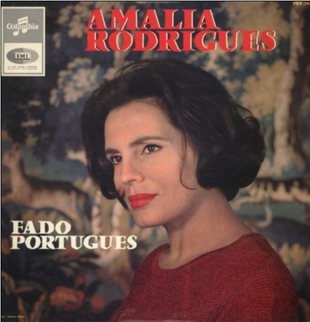
Fado Português is a fado album recorded by Amália Rodrigues and released in June 1965 on the Columbia label. The album was recorded the Valentim de Carvalho de Paço de Arcos studios. Amália was accompanied by musicians Domingos Camarinha on Portuguese guitar and Castro Mota and Martinho d'Assunção on viola. The cover photograph was by Augusto Cabrita. Eight of the 12 tracks on the album were written by Alain Oulman.
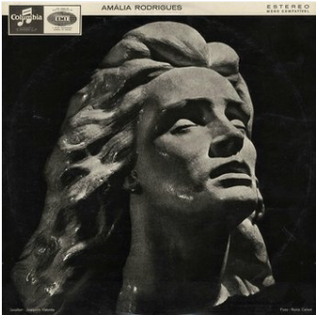
Amália Rodrigues, also known as Busto and Asas Fechadas, is a fado album recorded by Amália Rodrigues and released in 1962 on the Columbia label. The album is notable as it marks the start of Amália's collaboration with songwriter Alain Oulman. Amália was accompanied by musicians José Nunes on Portuguese guitar, Castro Mota on viola, and Alain Oulman on piano. The songs were recorded at the Teatro Taborda in Lisbon. The album cover features a bust of Amália sculpted by Joaquim Valente and photographed by Nuno Calvet.
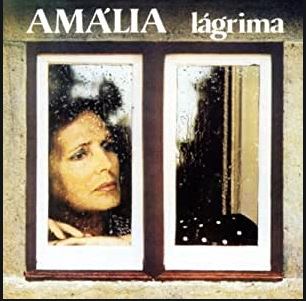
Lágrima is a fado album recorded by Amália Rodrigues and released in 1983 on the Columbia label (1652541). It was her final studio recording of new songs.
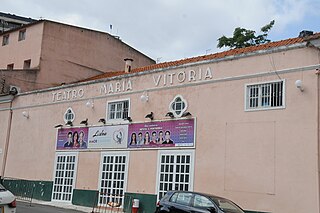
The Teatro Maria Vitória is a theatre in Lisbon, capital of Portugal. It is located in the theatre district of Parque Mayer.
References
- ↑ Paul Vernon A history of the Portuguese fado: Volume 1 1998 "Armandinho (1891-1946) was already a legendary figure by the time McCaul's account of him was written."
- ↑ Biografia (Portuguese)
- ↑ Travel Portugal 2007 "The main names of this period were: Alfredo Marceneiro, Amalia Rodrigues, Maria Teresa de Noronha and Armandinho and Jaime Santos (guitar players)."
- ↑ Armandinho (biography, in Portuguese)
- ↑ Abderrazak Bannour Il Mediterraneo vede, scrive, ascolta 2005- Page 362 "Nelle quartine anonime è racchiusa la filosofia fadista, edificata sulla parola-concetto saudade, che è nostalgia, ... Maria dos Anjos, Armandinho (1891-1946), Martinho d'Assuncào (1914-1992) virtuoso di viola, Raul Néry (1921) fondatore del ..."
- ↑ CD review digest: Jazz, popular, etc: Volume 7, Issue 4 1994 "Fados from Portugal, Volume 1 (Fado de Llsboa 1928-1936). ... guitar (three-fifths the size of the Spanish, rather more like a lute with 12 strings instead of 8) is heard most clearly in solos like Armandinho's 'Fao o Cuime'."